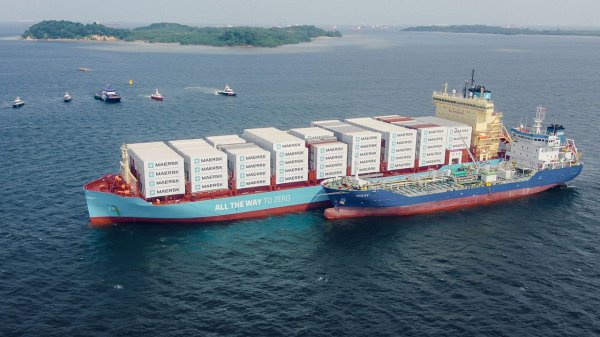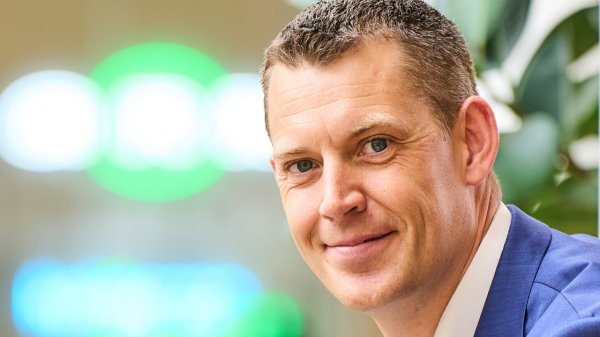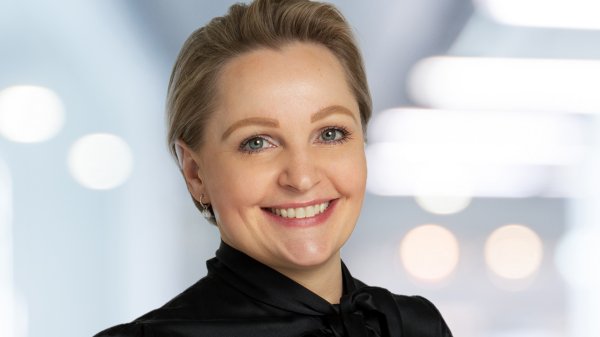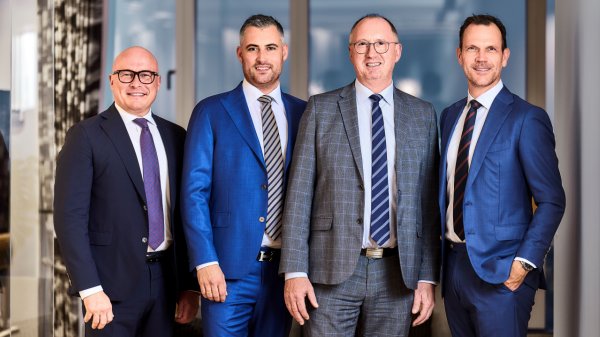Wartsila confirms 'no detrimental effect' on engine during MSAR fuel trial: Quadrise
Wartsila says further assessments during testing would be required to issue a full LONO.
Quadrise Fuels International plc (QFI), the emerging supplier of MSAR emulsion technology and fuel, confirmed on Wednesday the receipt of an interim letter of no objection (LONO) by Wartsila following the use of its engine during trials with MSAR.
According to QFI, the interim LONO confirms that MSAR emulsion fuel has "satisfactorily completed" 1,370 hours of a 4,000 hours validation test on board the Maersk vessel Seago Istanbul equipped with a Wartsila 12RT-flex96C-B engine, including a maximum duration of 139 hours in continuous operation.
Additionally, Wartsila is said to have confirmed that it saw "no detrimental effect on the RT-flex96C-B engines" with the use of MSAR fuel during the test based on the results of engine inspections and cylinder condition monitoring.
However, due to the number of test hours being below the full requirement of 4,000 hours (after Maersk decided to pull out of the trials and discount the use of exhaust gas scrubbers as an option going forward), together with the current maximum continuous hours of operation on MSAR, Wartsila observed that there remain points that would be assessed further in the next stage of testing as part of the normal process for issuing a full LONO.
In a statement, QFI said: "The outcome is just as we expected - MSAR fuel is safe to use in these diesel engines. It was always anticipated that continued operation to achieve the full 4,000 hours LONO validation, post the interim inspection, would be confirmatory in nature. With the trial having ended early, for reasons unrelated to the use of MSAR fuel, the Wartsila Interim LONO reflects the positive results and the exemplary work of the Quadrise team to date."
QFI added: "We will be using this positive endorsement to enhance our business development activities in the marine market."
Mike Kirk, executive chairman, remarked: "We are pleased that Wartsila has confirmed its satisfaction in recent MSAR testing and inspection, and the interim LONO states that no detrimental effects have been shown from MSAR fuel in the Wartsila engine."
QFI also reiterated its belief that the marine industry will adopt the use of exhaust gas cleaning systems and high-sulphur heavy fuel as the most economic compliance option for the upcoming 0.5 percent global sulphur cap in 2020.
MSAR fuel has so far been supplied with a sulphur content higher than 0.5 percent (thus, it would need to be used together with a scrubber in 2020), but QFI has previously not discounted the prospect of working with refiners or suppliers to produce a MSAR fuel with a sulphur content lower than the 0.5 percent limit.
According to QFI, the interim LONO confirms that MSAR emulsion fuel has "satisfactorily completed" 1,370 hours of a 4,000 hours validation test on board the Maersk vessel Seago Istanbul equipped with a Wartsila 12RT-flex96C-B engine, including a maximum duration of 139 hours in continuous operation.
Additionally, Wartsila is said to have confirmed that it saw "no detrimental effect on the RT-flex96C-B engines" with the use of MSAR fuel during the test based on the results of engine inspections and cylinder condition monitoring.
However, due to the number of test hours being below the full requirement of 4,000 hours (after Maersk decided to pull out of the trials and discount the use of exhaust gas scrubbers as an option going forward), together with the current maximum continuous hours of operation on MSAR, Wartsila observed that there remain points that would be assessed further in the next stage of testing as part of the normal process for issuing a full LONO.
In a statement, QFI said: "The outcome is just as we expected - MSAR fuel is safe to use in these diesel engines. It was always anticipated that continued operation to achieve the full 4,000 hours LONO validation, post the interim inspection, would be confirmatory in nature. With the trial having ended early, for reasons unrelated to the use of MSAR fuel, the Wartsila Interim LONO reflects the positive results and the exemplary work of the Quadrise team to date."
QFI added: "We will be using this positive endorsement to enhance our business development activities in the marine market."
Mike Kirk, executive chairman, remarked: "We are pleased that Wartsila has confirmed its satisfaction in recent MSAR testing and inspection, and the interim LONO states that no detrimental effects have been shown from MSAR fuel in the Wartsila engine."
QFI also reiterated its belief that the marine industry will adopt the use of exhaust gas cleaning systems and high-sulphur heavy fuel as the most economic compliance option for the upcoming 0.5 percent global sulphur cap in 2020.
MSAR fuel has so far been supplied with a sulphur content higher than 0.5 percent (thus, it would need to be used together with a scrubber in 2020), but QFI has previously not discounted the prospect of working with refiners or suppliers to produce a MSAR fuel with a sulphur content lower than the 0.5 percent limit.

|
How to engineer and manage green shipping fuels | Stanley George, VPS
Effective management strategies and insights for evolving fuel use. |
|
|
|
||

|
Swedish government bans scrubber wastewater discharges
Discharges from open-loop scrubbers to be prohibited in Swedish waters from July 2025. |
|
|
|
||

|
MAN Energy Solutions achieves 100% load milestone for ammonia engine
Latest tests validate fuel injection system throughout the entire load curve. |
|
|
|
||

|
Petrobras secures ISCC EU RED certification for B24 biofuel blend at Rio Grande
Blend consisting of 24% FAME is said to have been rigorously tested to meet international standards. |
|
|
|
||

|
Stolt-Nielsen to fully control Avenir LNG with acquisition
Share purchase agreement to buy all shares from Golar LNG and Aequitas. |
|
|
|
||

|
Bureau Veritas supports launch of CIMC SOE's LNG bunkering vessel
Handover of Seaspan Energy's cutting-edge 7,600-cbm vessel completed. |
|
|
|
||

|
Methanol as a marine fuel | Steve Bee, VPS
How environmental legislation has driven the development of low-sulphur fuels and methanol-ready ships. |
|
|
|
||

|
Martin Vorgod elevated to CEO of Global Risk Management
Vorgod, currently CCO at GRM, will officially step in as CEO on December 1, succeeding Peder Møller. |
|
|
|
||

|
Dorthe Bendtsen named interim CEO of KPI OceanConnect
Officer with background in operations and governance to steer firm through transition as it searches for permanent leadership. |
|
|
|
||

|
Bunker Holding revamps commercial department and management team
CCO departs; commercial activities divided into sales and operations. |
|
|
|
||
Related Links
- · Wartsila produces draft MSAR interim LONO: Quadrise [Insights]
- · Wartsila MSAR fuel LONO expected in May: Quadrise [Insights]
- · Maersk pulls out of MSAR fuel trial [Insights]
- · Quadrise confirms two-shift production at Cepsa refinery [Insights]
- · Quadrise to progress to combustion testing after signing Saudi Arabia MoU [Insights]
- · United Kingdom [Directory]

